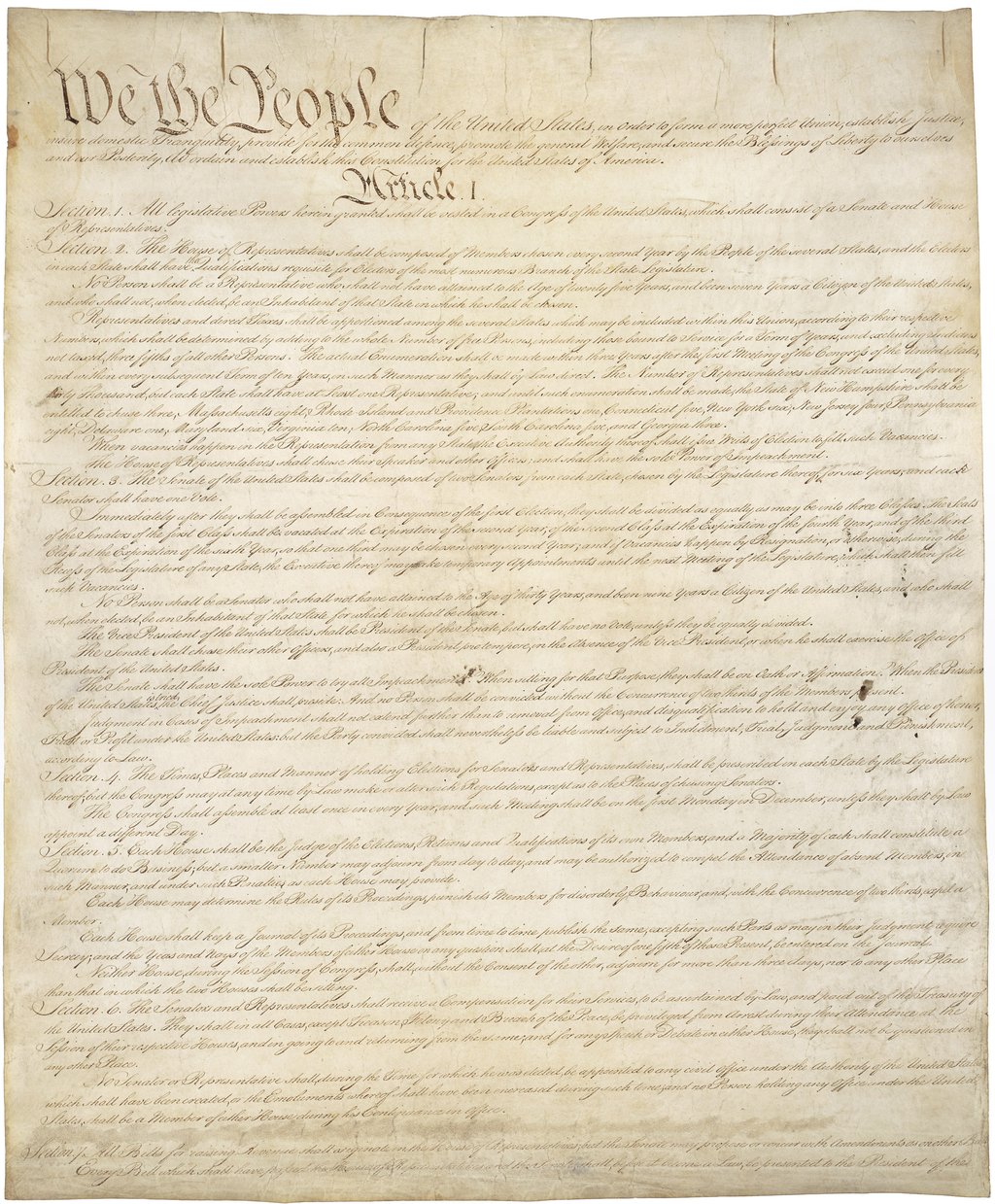
Probable cause
In United States criminal law, probable cause is the legal standard by which police authorities have reason to obtain a warrant for the arrest of a suspected criminal and for a court's issuing of a search warrant.[1] One definition of the standard derives from the U.S. Supreme Court decision in the case of Beck v. Ohio (1964), that probable cause exists when “at [the moment of arrest] the facts and circumstances within [the] knowledge [of the police], and of which they had reasonably trustworthy information, [are] sufficient to warrant a prudent [person] in believing that [a suspect] had committed or was committing an offense.”[2]
Moreover, the grand jury uses the probable cause standard to determine whether or not to issue a criminal indictment. The principle behind the probable cause standard is to limit the power of authorities to conduct unlawful search and seizure of person and property, and to promote formal, forensic procedures for gathering lawful evidence for the prosecution of the arrested criminal.[3] In the case of Berger v. New York (1967), the Supreme Court said that the purpose of the probable-cause requirement of the Fourth Amendment is to keep the state out of Constitutionally protected areas until the state has reason to believe that a specific crime is being committed or has been committed.[4] The term of criminal law, the probable cause standard is stipulated in the text of the Fourth Amendment to the U.S. Constitution:
Moreover, in U.S. immigration law, the term “reason to believe” is equivalent to the probable cause standard of criminal law,[5] and should not be confused with reasonable suspicion, which is the legal criterion required to perform a Terry stop in the U.S.
Definition[edit]
The usual definition of the probable cause standard includes “a reasonable amount of suspicion, supported by circumstances sufficiently strong to justify a prudent and cautious person’s belief that certain facts are probably true.”[6] Notably, this definition does not require that the person making the recognition must hold a public office or have public authority, which allows the citizenry’s common-sense understanding of the legal standard of probable cause for arrest.
Regarding the issuance of a warrant for arrest, probable cause is the “information sufficient to warrant a prudent person’s belief that the wanted individual had committed a crime (for an arrest warrant) or that evidence of a crime or contraband would be found in a search (for a search warrant)”. As a legal standard, probable cause is stronger than reasonable suspicion, but weaker than the requirement of evidence to secure a criminal conviction. Moreover, according to the Aguilar–Spinelli test a criminal court can choose to accept hearsay as a source of probable cause if the source-person is of reliable character or if other evidence supports the hearsay. In the case of Brinegar v. United States (1949), the Supreme Court defined probable cause as “where the facts and [the] circumstances within the officers’ knowledge, and of which they have reasonably trustworthy information, are sufficient, in themselves, to warrant a belief, by a man of reasonable caution, that a crime is being committed.”[7]
Cyber surveillance[edit]
Under the 2001 USA Patriot Act, law enforcement officials did not need probable cause to access communications records, credit cards, bank numbers and stored emails held by third parties. They only need reasonable suspicion that the information they were accessing was part of criminal activities. Under this, officers were authorized for a court order to access the communication information. Only certain information could be accessed under this act (such as names, addresses, and phone numbers, etc.). Probable cause was, and is, needed for more detailed information because law enforcement needs a warrant to access additional information. Generally, law enforcement was not required to notify the suspect.[19] However, the text of the Patriot Act limits the application of that statute to issues that clearly involve the national security of the United States.[20] The U.S. patriot Act expired on June 1, 2015.[21]
Accident investigation[edit]
In the United States, the term probable cause is used in accident investigation to describe the conclusions reached by the investigating body as to the factor or factors which caused the accident. This is primarily seen in reports on aircraft accidents, but the term is used for the conclusion of diverse types of transportation accidents investigated in the United States by the National Transportation Safety Board or its predecessor, the Civil Aeronautics Board.
Comparison with other countries[edit]
Sweden[edit]
In the criminal code of some European countries, notably Sweden, probable cause is a higher level of suspicion than "justifiable grounds" in a two level system of formal suspicion. The latter refers only to the suspect being able to and sometimes having a motive to commit the crime and in some cases witness accounts, whereas probable cause generally requires a higher degree of physical evidence and allows for longer periods of detention before trial. See häktning.